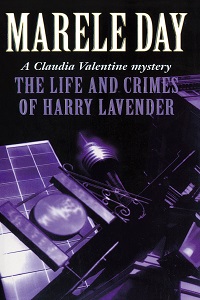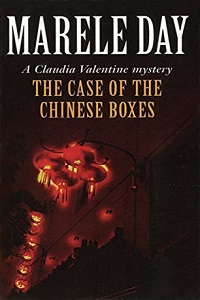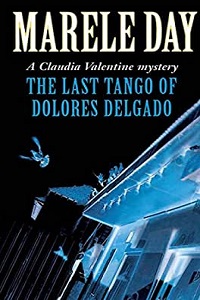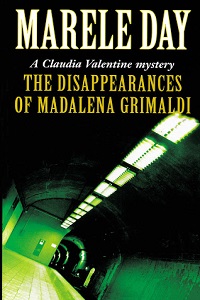Australian Crime Fiction Snapshot - Chris Womersley
1. You've managed to instil a deep level of hopelessness right from the opening chapter in The Low Road, it's very atmospheric. Were you concerned that readers might be put off by just how bleak the mood is? Taking that thought a bit further, did you write with the reader in mind or did you simply follow where the story took you?
I took it as a challenge to construct a tale that could still be compelling despite its at times rather bleak atmosphere and characters that were still sympathetic despite their flaws. To be honest, there was a part of me that savoured the experience of writing something that for a long time I thought would never see the light of day anyway. It gave me a great freedom. As Pat Barker has said: “You must always ask yourself ‘what is the book I would write if I knew it wasn’t going to be published?’”.
I suspect the reading public has a stronger stomach for different sorts of stories than publishers and other literary gatekeepers give them credit for. Not everyone wants to read the “heartwarming tale of a young boy’s friendship with blah blah blah …”. Not that there is anything wrong with those sorts of stories, of course, but there is room enough for many shades of grey. I created a bunch of characters I was interested in and placed them in a setting I was intrigued by and just sort of followed them along, writing down what they were doing. In some cases it wasn’t pretty.
2. Can you take us through the evolution of The Low Road? Is there anything else in the pipeline for 2008 and beyond?
I wrote a first draft of ‘The Low Road’ in about six months in 2002, when it was my last opportunity to enter The Vogel Award, which is only open to unpublished authors under the age of 35. It was a pretty lousy version of the novel and got nowhere with The Vogel Award but I resurrected it upon starting the Professional Writing and Editing Course at RMIT in Melbourne and basically took the same characters and plotline but rewrote it and tightened it up a lot. The character of Wild didn’t even exist in the initial versions and it was written totally from Lee’s point of view, rather than sharing the point of view between all three main characters, which added a great deal of depth, as well as allowing for tighter plotting. In 2006 it was shortlisted for the Victorian Premiers’ Award for an unpublished manuscript but I still struggled to find a home for it until Aviva Tuffield at Scribe Publications read it and picked it up.
As for 2008, I have started work on a new novel which at this stage is a novel set in rural Australia during the Spanish Flu epidemic of 1919, which my protagonist believes is a foretelling of the end of the world.
I write short stories as well, with two scheduled for publication later this year – The Possibility of Water in The Griffith Review in May and one called What the Darkness Said which will be published in March in Wet Ink.
3. Do you read much Australian crime fiction? Can you give us a few standouts that you've read recently? What do you think of the current state of the Australian crime fiction scene?
I’m unsure what exactly ‘crime fiction’ even is, to be honest, and suspect it’s a label that’s useful from a marketing point of view more than anything else. A good book is just a good book. It’s true that I prefer to read about the darker side of life, but procedural crime fiction doesn’t really interest me. Some of my favourite recent Australian novels include Peter Carey’s The True History of The Kelly Gang and Surrender by Sonya Hartnett, both of which feature crimes and its consequences.
4. What do you think could be done to better promote Australian authors either at home or abroad (or both)?
It’s certainly difficult to be an unknown writer struggling for exposure when there are so many other forms of art and entertainment all vying for an audience, particularly in a culture that places such little value on its artists. Maybe the government could match the millions and millions of dollars spent on Australian cricketers and Olympians and rugby players and soccer players in an effort to provide exposure for Australian writers overseas and around the country?
5. If your fictional character could meet any fictional character who would you like it to be and why?
Good question. I would like Josef to run into Forrest Gump somewhere along the way because he would probably kill him, which would be good. Wild might benefit from an encounter with The Naked Lunch’s Dr Benway, because they would have quite a lot to talk about and, let’s face it, they might as well just get really stoned. Lee really needs a cup of tea and a good lie down. I hope he might make the acquaintance of Hana from The English Patient, a dedicated nurse who could care for him far better than any of those bums in The Low Road. Perhaps they could even fall in love and set up home somewhere safe, have babies and live happily ever after? There could be a sequel in that somewhere…
Chris Womersley's noir tale of two fugitives searching for redemption is titled The Low Road and was released in 2007. It's suitably dark, atmospheric and full of despair (a little like Essendon's chances this year, heh, heh...sorry). You can check out the latest happenings to do with Chris Womersley by visiting his website.





No comments:
Post a Comment